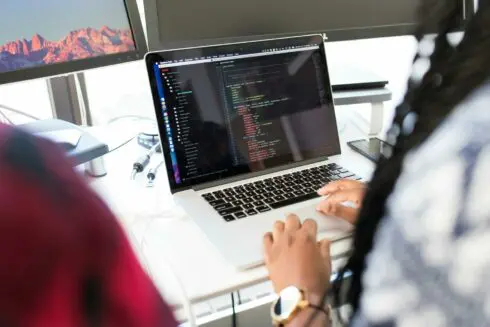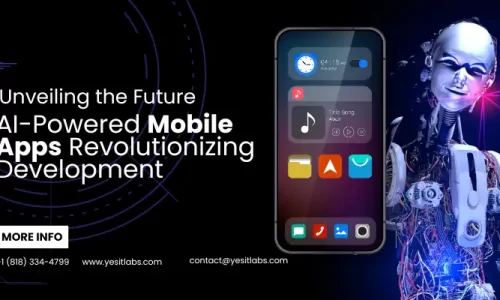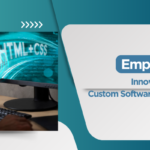
Q&A: Why over half of developers are experiencing burnout
- softscribble@gmail.com
- July 2, 2024
- Software development
- 0 Comments


According to a recent report from Jellyfish, 65% of respondents said they experienced burnout in the last year.
To dig deep into why that’s happening at such a high rate, we invited the company’s CEO and co-founder, Andrew Lau, onto the latest episode of our podcast, What the Dev?
Here’s an abridged and edited version of that conversation.
Jenna Barron: What are some factors that have contributed to the percentage of burnout among developers being so high?
Andrew Lau: I think it’s a compounding of a number of effects. First and foremost, I would just say it’s been a crazy four years. I mean, it’s been so volatile; you’ve got pandemics, you’ve got booms and busts. And so, like there’s a health crisis, first and foremost, and people are kind of getting through that. And there have been really huge economic swings in the tech industry. I think the broad economy seems to be doing okay, but if you look at the tech sector as a whole, it’s been hard. And that puts pressure on everybody around what that actually means for them.
And I actually think that we are at a time where we’ve learned as a community, as an industry how to work remotely or hybrid. But I think those environments aren’t always the most conducive to actually making it a human experience or easier. For me, I go from Zoom to Zoom to Zoom without any breaks. And we haven’t learned the rhythms of keeping sanity in that.
And then like the last layer on top is like we’re at a time where AI is already causing change, there’s looming change coming. And there’s a lot of unknown and pressure.
I think it’s the backbone theme through all of this that is causing a lot of stress and inevitably leads to burnout.
JB: What do you think that companies and leadership can do to ensure that their employees don’t reach that point?
AL: Well, if everyone had a magic formula, we’d all just do it and be done. But I think in some ways, it is simple in the sense that we have to acknowledge it first. I think if you don’t say this is an issue and how we address it, then that’s a problem. You’re never going to fix it otherwise.
So I think it’s important to ask and understand how your team is actually doing with respect to that. I do think though, one aspect of this is about why change is happening. And so some is clear, like pandemics you can’t control and hybrid happened to all of us in this way. But I think in some ways, we have to talk about the intentionality around some of this too. And just saying, like, “hey, this is happening and this is why we’re doing it.” I think that helps people understand the why, and often that can either make it easier to accept the changes that need to happen, or figure out better ways to do it.
JB: Another finding from the report is that 90% of the respondents said that engineering teams are actually informing business strategy. So what does that look like in practice?
AL: This is, I think, an acknowledgment from that old Marc Andreesson statement that software is eating the world. I think we’re there and ate the world.
Now, what does it actually mean? Well, it first meant that every company is actually making software. But more than that, that software is the manifestation of the company’s offerings now. And you see this in every industry, whether it’s healthcare or banking, or whatever it is, software is the lingua franca of the thing you’re making, or the thing that makes the thing you’re making.
And so how does it look in practice? Well, if that’s true, then it means the ideas are coming from the teams. So I think you’re actually now starting to see this around AI innovation. Historically, someone might say, we ought to solve this business problem, okay. But now you have to ask yourself, what are the technical limitations? Can we even do that or not? Or, we have this AI thing, what are we going to do with it? And how does it actually manifest? It’s teams actually trying stuff out, plugging it in, etc. So whether it manifests in a hackathon or side projects, or people dealing with ChatGPT to try to go ahead and change something, it’s just manifesting very quickly. At the very least, it may not be a complete product yet, but at least it sets a direction and stage and unlocks the facility. And people are realizing what can and can’t be done. And it’s no longer like it can be a business decision alone. In fact, the innovation of spirit is coming from the technologists and the manifestations in that way.
JB: It seems kind of counter to what we’ve heard over the years where there’s been sort of like this friction between leaders and engineers, and engineers want to build one thing and the leaders want something else. And engineers are like, “No, we can’t do that.” But it seems like based on these numbers, the engineers are having more of a say in what’s realistic and what can be done.
AL: I think I’m with you. I think there’s actually a confluence of two forces going on there. One is that things are so novel and complicated, but also idea inspiring, so the manifestations can come from the engineers because they’re making it happen. It’s like everyone just suddenly gets it or they see competitors suddenly do this. So in some sense the medium is allowing the makers to actually suddenly blossom those ideas on the other side. I just led this conversation earlier, which is we’re in a time of economic uncertainty and potentially just like tough times in the tech space. Again, no one seeks it, but there are some silver linings to here, which is it forces alignment, like in the sense that when waste is prevalent, like both parties were like, “Well, I think we should be making this,” “I think we should be making that.” In a time where we’re focused on efficiency, you have to reconcile the two. It can’t be like, I wish this and I wish that. It’s like, no, we have time for one of those things. And we’re going to reconcile it. And so the confluence of those two forces, I think, allows some alignment to suddenly happen in that way.
JB: I know the report had a lot of other interesting things. And we really only covered two of them. What would you say is the biggest takeaway from the report, or maybe an interesting thing that we didn’t touch on that you would want developers and engineers to leave with?
AL: Change is so deeply in play in our industry right now, and in every way, from the way we work, to the tools we use, the technologies, manifestations we can actually make. It’s happening at every single layer.
And so with that, I actually think you have to have all parties fully embrace change. Like it is happening, you can’t fight it. Accept it and figure out how you’re going to adopt it, and bring it in and talk about what has to change along the way.
I think you can’t just keep doing the same thing again. Both for your company’s survival and thriving, and for your happiness, contentment, and reducing stress. Embrace it in that way.
You may also like…
Report: Software engineers increasingly seen as strategic business partners
The real problems IT still needs to tackle for platforms
Contact Softscribble for your software Requirement
Contact Now






